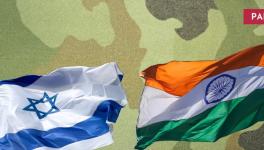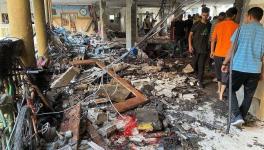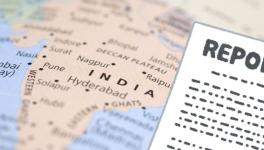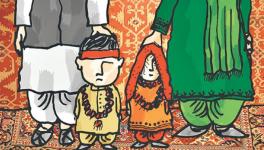Somalia's Food Crisis Claims Young Lives
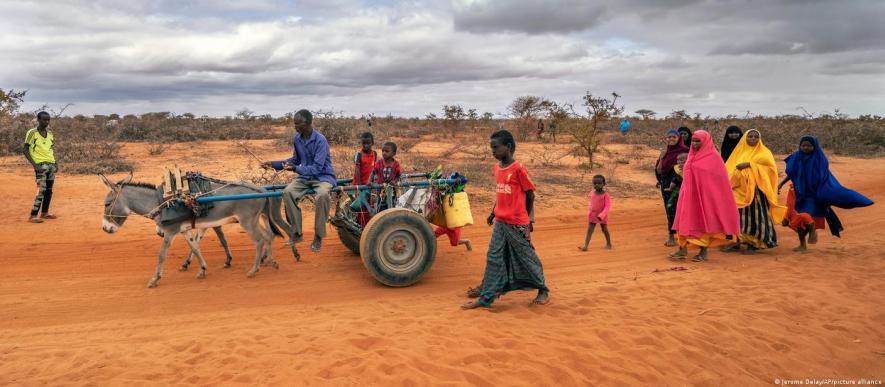
Oxygen machines beep and people whisper at the intensive care unit of Banadir Hospital in Mogadishu, Somalia's capital. Foil shields the windows from sunlight and lets in a blue glow.
The worst cases of child malnutrition are referred to this facility. Doctors say many children die on the way here.
Amina Abdi is fighting for her life. The 4-year-old has been in a coma for days. "Now she weighs only 7 kilograms [15 pounds]. Normally, she should weigh around 16 kilograms," says Dr. Aweis Olow Hassan, the head of the hospital's pediatric department.
"She came with severe acute malnutrition, in a critical condition. We just call it 'shock.' She's a terminal case."
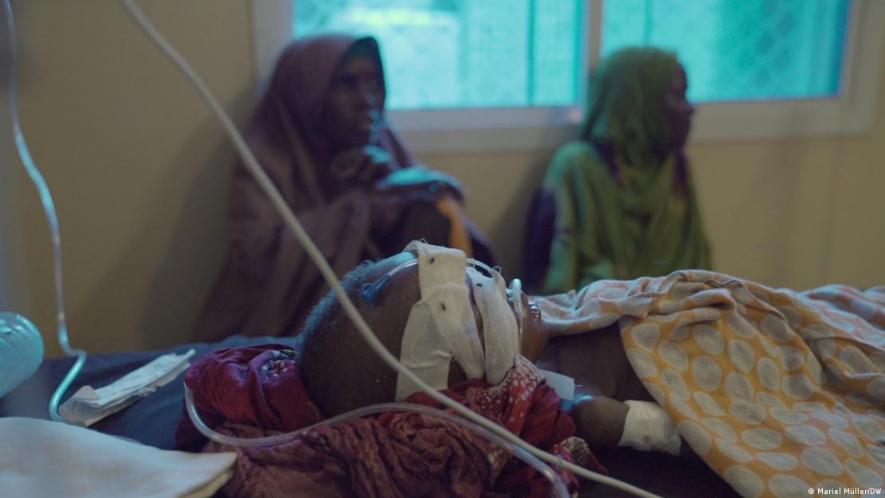
Amina Abidi's mother and aunt have not left her side at Banadir Hospital
UN: 1 case every minute at clinics
Amina's mother and aunt have lost three children between them this year. The United Nations says a severely malnourished child is admitted to hospital every minute of every day on average.
The worst drought in 40 years is devastating Somalia. Fear that a fifth consecutive failed rainy season is upon the country is growing. More than 7 million people are in need of food assistance.
Amina's family used to be livestock farmers. "We had farms and we had livestock, but we lost all of it because of the drought. We've been facing the drought for three years now. When it got worse, we left and we came to the city," says her aunt, Arda Mohammed Osman.
Dr. Hassan explains that when a malnourished mother stops giving breastmilk, her infant can starve. The baby starts vomiting or having diarrhea and fever. Often the parents don't know it's starvation until it's too late. "Cases are coming in in a terminal state, so some of them may die whatever you do."
Malnourished babies will likely have cognitive impairment growing up, says Dr. Hassan. "This malnourished child will not be a good leader. He won't be a good president or MP because of malnutrition. What we worry about is not only his productivity and learning ability. We worry about their future leadership."
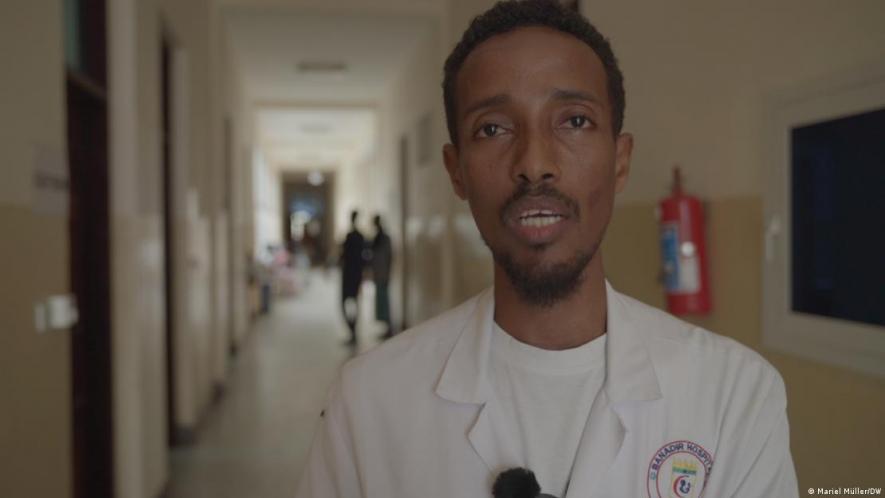
Dr. Aweis Olow Hassan, the head of pediatrics at Banadir Hospital in Mogadishu
Farmers face drought and extremists
At Banadir Hospital, one man sits with his two-month-old baby girl, Ruqiyo. The father asks for his own name not to be published.
He used to be a farmer in the central Galguduud region. After al-Shabab militants took over his land, he fled. "They bother people a lot. They take your livestock and they want you to join them. They were telling us to join the fighting. And at the same time our livestock were perishing because of the drought."
The al-Qaida-linked Islamist militant group controls vast parts of rural Somalia. Ruqiyo's father says al-Shabab has ruled his village for 13 years now. His relatives say the situation is deteriorating by the day, with people starving and water in short supply.
"There is no aid. The government doesn't go there and aid doesn't go there. And they [al-Shabab] don't help anyone," he says.
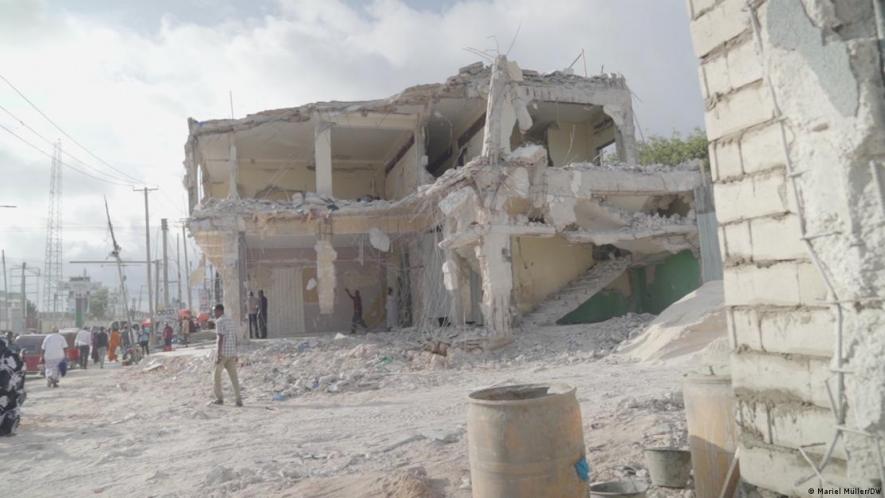
Somalia's Education Ministry in the aftermath of an attack by al-Shabab in October 2022
1.6 million displaced this year alone
On October 29, al-Shabab carried out its deadliest attack in five years. Two car bombs exploded at a busy intersection in Mogadishu, killing more than 120 people. In 2017, an attack at the same junction claimed 500 lives.
Some 240 kilometers away in the Bay region, most of Somalia's 1.6 million newly displaced people found shelter from the drought and conflict. They made their way to the regional capital Baidoa and the areas around to escape the drought and conflict, according to the UN.
Hundreds of improvised camps are spread around the city of 800,000 to accommodate almost the same amount of displaced people. Baidao Mayor Abdullahi Ali Watiin says the camps are expected to house up to 1 million people by the end of the year.
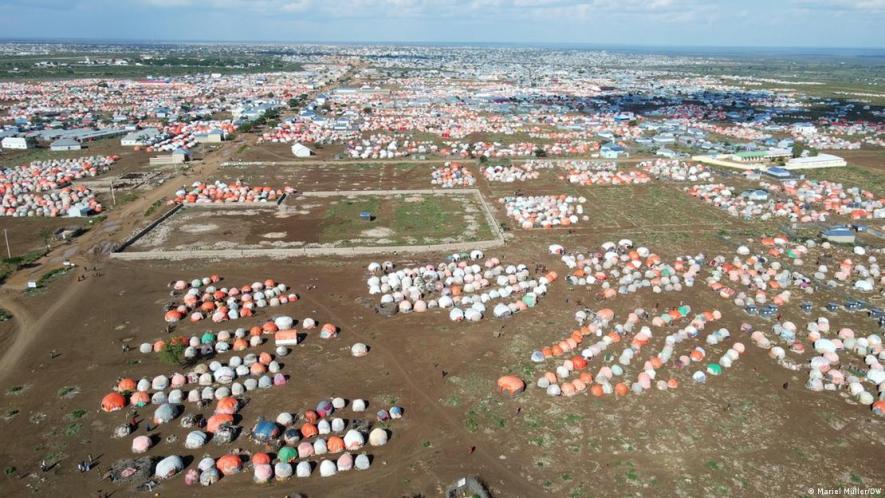
Somalia's displaced by drought are being housed across some 600 camps in and around the southwestern city of Baidoa
Child deaths double in a year
Hawo Issack Moalim and her five children are staying in a tent at one of the camps in Baidoa. The 50-year-old says she left home after her camels died of thirst.
"We came here because of hunger, but until now we haven't received any help. We barely receive water or food. We are really struggling here," she says.
A few weeks ago, her son Hassan Issack fell ill with whooping cough, vomiting and diarrhea. The tablets he received at the camp did not help.
"Because of the drought, he died. He's been buried for 15 days now. He was 8-years-old." Isaack Moalim says she has no time to grieve — she has to ensure her other children survive.
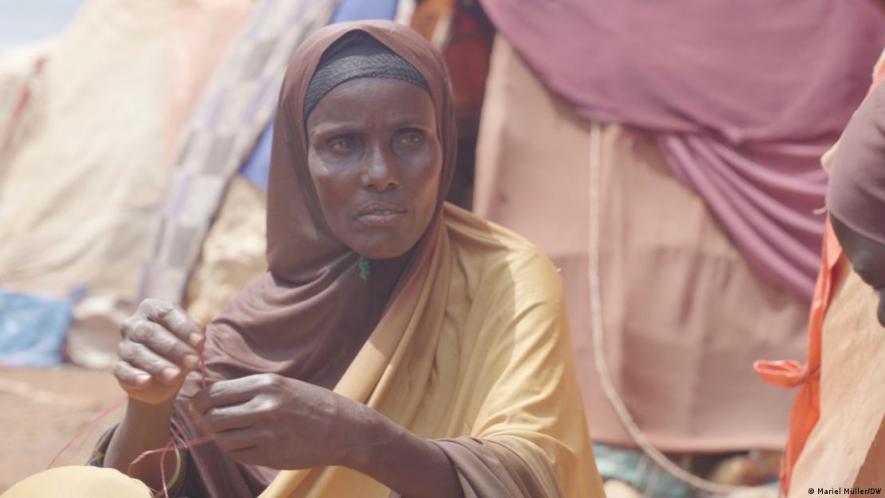
Hawo Issack Moalim's 8-year-old son starved to death 15 days ago in Somalia
The UN Children's Fund (UNICEF) says so far this year, 964 children died in Somalia, nearly twice as many as in 2021.
"We have half a million children that are severely acutely malnourished, which means that if they don't receive timely assistane they are just simply going to die," says Wafaa Saeed, the UNICEF representative for Somalia.
The UN has raised only half the funds it needs to help, with $1 billion (€971,345 million) more needed to prevent a humanitarian catastrophe, she says.
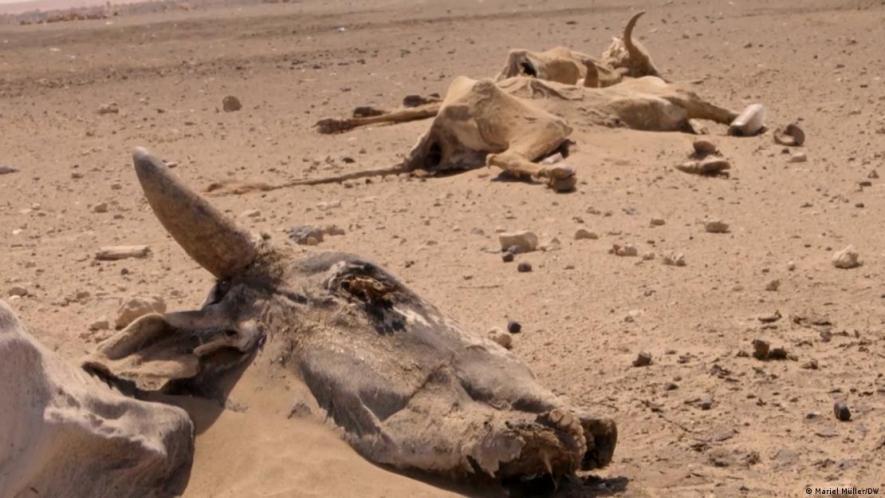
The drought has had devastating consequences for people with livestock in Somalia
Al-Shabab 'one of the chronic diseases'
The government of Somalia has yet to declare a famine, even though some aid workers say the threshold for famine has already been reached in areas such as Baidoa.
A declaration of famine would unlock more aid into the country and save lives, non-governmental organizations say. But in a recent interview, President Hassan Sheikh Mohamud said even if more aid were to flow, al-Shabab would prevent it reaching those in need.
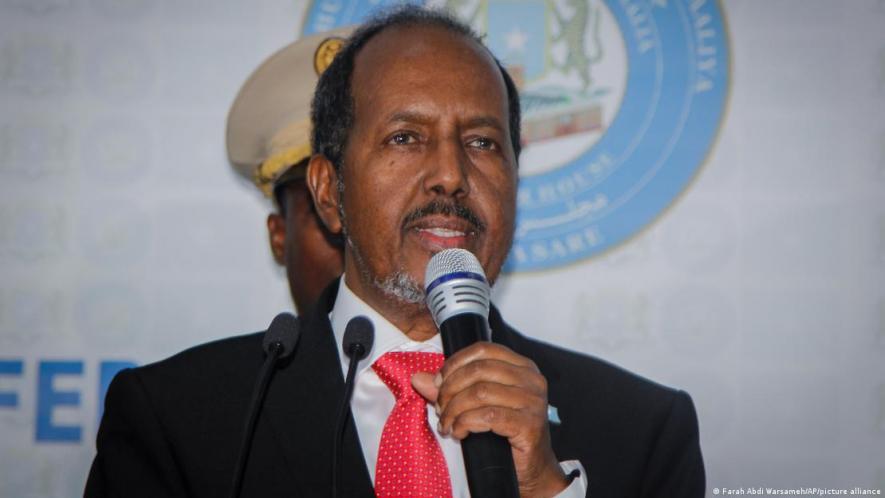
Somalia's President Hassan Sheikh Mohamud returned to office in May 2022 after being voted out of power in 2017
In 2011, most of the 260,000 deaths that occurred as a result of famine in Somalia, were recorded before a famine was declared.
UN agencies have scaled up their efforts, according to Somalia UNICEF representative Wafaa Saeed. "But this is not enough because this climate crisis is a protracted situation. We need to invest in prevention. We need to support these families in defense of their livelihoods."
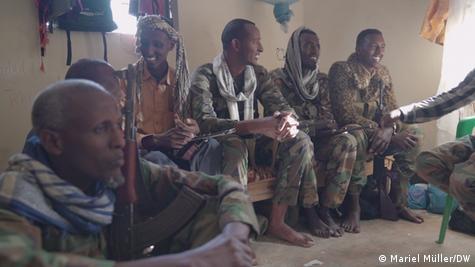
A militia in Baidoa is led by a former al-Shabab member
In 2011, large parts of the country, including Baidoa, were under al-Shabab control. In February 2012, the army drove the extremists out.
Mayor Watiin is on patrol with Police Station Commander Mohamed Nor Muktar. He says they are doing their best to keep al-Shabab out of Baidoa. But the extremists are stationed some 30 kilometers from the city borders.
"We're on high alert day and night to avoid getting ambushed," Nor Muktar says.
Police patrol daily, while community and religious leaders and elders work to prevent al-Shabab from recruiting young men.
"Al-Shabab has become one of the chronic diseases that we have faced in the last 15 and more years," says Watiin. "And people have suffered a lot in terms of the security, environment and economic crisis."
A former member of al-Shabab is in charge of a militia that is fighting the Islamist extremists in Baidoa. They are gathered at a hideout on the outskirts of the city to plan their next offensive. Their leader says he wants to remain anonymous.
"I joined the group [al-Shabab] in 2007," he says. "In my youth is when they had control in the country. There was a lot of unemployment and lack of opportunities."
After a few years spent fighting for al-Shabab, he worked as a "tax collector" — extorting money from farmers and shop owners, he says. After almost a decade with the group, after witnessing torture, public executions and harassment, he changed his mind.
"I realized their goal was not to establish a government, rule of law and preventing bloodshed." As the bombings continued, he fled, fearing for his life because leaving al-Shabab spells death.
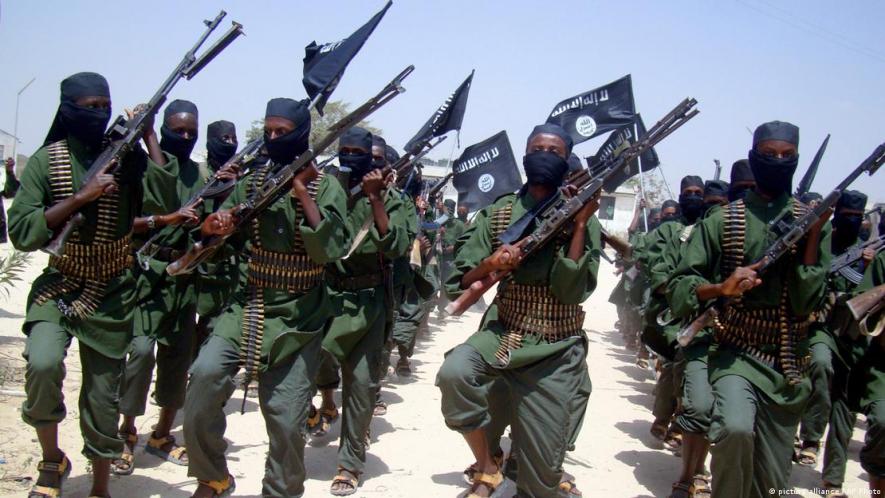
Al-Shabab fighters pictured on the outskirts of Mogadishu in 2011
In Baidoa, the militia leader's hometown, he decided to fight his former comrades. But he had to leave his family behind in the al-Shabab controlled territory. He says his wife was forced to remarry and his son will probably soon be recruited. Al-Shabab is making matters worse for people facing drought — stripping them of what little they have left , preventing them from leaving and cutting them off from aid organizations.
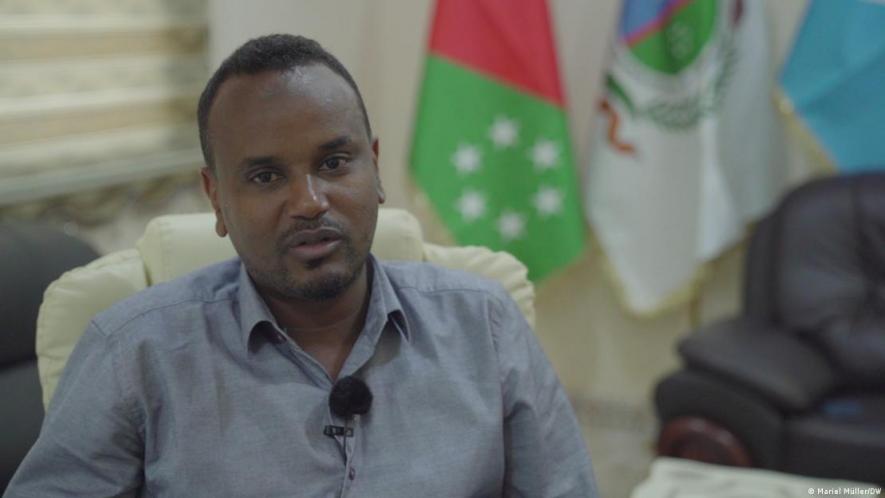
Baidoa Mayor Abdullahi Ali Watiin is tired of short-sighted solutions
Hopes for COP27 outcome
Mayor Watiin says he's tired of short-sighted solutions: "Somalia is one of the most affected areas by climate change. What will happen after this drought ends? Do we wait until another famine comes or will we come up with initiatives that we need to mitigate future shocks?"
Watiin wants to see what the "historic" loss and damage fund adopted at the UN climate talks, or COP27, will ultimately mean for his community. He expects help from the world's biggest polluters.
The mayor of Baidoa wants COP27 stakeholders to look into the extreme climate events that are disrupting the food security and would like to see financial compensation allocated to build an early warning system.
It is estimated that Somalia, Ethiopia and Kenya are responsible for just 1.2% of global greenhouse gas emissions but suffer massively from the harmful effects.
Edited by: Benita van Eyssen
Get the latest reports & analysis with people's perspective on Protests, movements & deep analytical videos, discussions of the current affairs in your Telegram app. Subscribe to NewsClick's Telegram channel & get Real-Time updates on stories, as they get published on our website.













